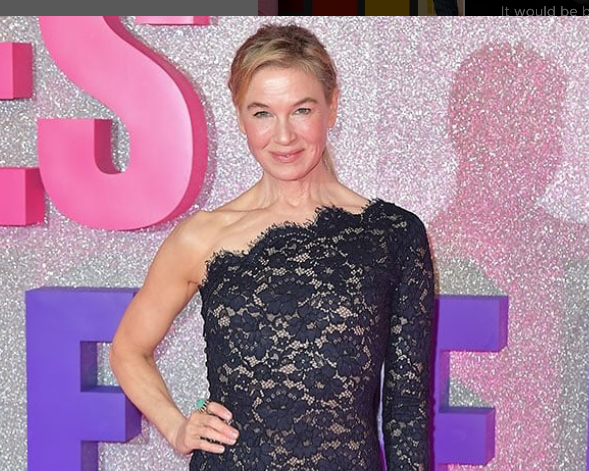After a long break, Renée Zellweger returned to the Elle Women in Hollywood Awards in October 2014, only to be greeted by a cultural backlash against her appearance rather than praise for her skill. The 45-year-old Oscar winner found herself at the center of a controversy that quickly swept through talk shows, tabloids, and Twitter feeds. Even by Hollywood standards, the scrutiny was extremely intrusive, the rumors were unrelenting, and the commentary was frequently harsh.

Something much deeper than a changed appearance was brought to light by the intensity of the media frenzy. It demonstrated how women’s faces continue to be used as gauges of value, worth, and even truth in society, especially in the entertainment sector. The shock had been exacerbated by Zellweger’s remarkable disappearance from public view for a few years. The world’s response to the idea that a woman, whether she was aging naturally or not, dared to look different was the true headline, not a new jawline or a raised brow.
Renée Zellweger: Profile Summary
| Field | Information |
|---|---|
| Full Name | Renée Kathleen Zellweger |
| Date of Birth | April 25, 1969 |
| Birthplace | Katy, Texas, United States |
| Occupation | Actress, Producer |
| Known For | Bridget Jones’s Diary, Chicago, Judy, Jerry Maguire |
| Awards | Academy Award (Best Actress – Judy, 2019); 2x Golden Globe winner |
| Notable Quote | “I’m glad folks think I look different… I’m living a different, happy life.” |
| Public Response | Op-Ed in HuffPost (2016), Interviews with People & Vulture |
Public Criticism and Perception’s Burden
Zellweger had already navigated Hollywood’s intense spotlight for 20 years by 2014. Although she had received recognition for her commitment—gaining and losing weight for parts like Bridget Jones and changing for “Judy”—she was still made fun of for physical characteristics like her hooded eyes. The change in public opinion following her 2014 appearance felt remarkably like a betrayal. As though Zellweger owed her former persona to the public.
There were rumors of Botox, cheek fillers, brow lifts, and eyelid surgery. Like forensic specialists, analysts examined images in an effort to find evidence. Zellweger, however, consistently claimed in interviews that she had not undergone any surgical procedures. In her impactful 2016 HuffPost opinion piece, “We Can Do Better,” she stated, “Not that it’s anyone’s business, but I did not make a decision to alter my face.”
She made it very apparent that the discussion was about all women, not just herself. Her observations went beyond self-defense. It served as a rallying cry against a society that so blatantly regulates women’s appearance, especially as they get older.
Which Procedures Did She Face?
The charges were hypothetical rather than factual. However, they continued in online forums and tabloids:
- Eyelid Surgery (Blepharoplasty): It was thought that Zellweger had removed extra skin because her eyes seemed more open. Even before this, people had frequently discussed her naturally hooded lids.
- Brow Lift: According to rumors, she had a subtle lift because her brows were higher and more arched.
- Cheek Fillers or Implants: Although she had previously been criticized for having “chipmunk cheeks,” some people thought that her fuller cheeks were the result of injections or fat grafting.
- Her more defined jaw, purportedly attained through contouring or injectables, was the subject of speculation.
- Botox: Her forehead’s smoothness raised suspicions that she had used Botox, but fans and experts couldn’t agree on whether this was just speculation or if it was makeup or lighting.
Media headlines magnified these presumptions, which were frequently made by anonymous internet users. As if the audience’s unease with her changed appearance could be justified by proof of surgery.
An Answer Based on Dignity
Remarkably calm and sympathetic, Zellweger’s response was not to reject aging or change. Rather, she suggested that we rewrite the story. She highlighted the harmful cultural message that a woman’s appearance is the most significant component of her identity in her 2016 opinion piece. She criticized media culture that is especially cruel to aging women, writing, “It’s no secret a woman’s worth has historically been measured by her appearance.”
In a 2019 interview with Vulture, she was just as open about how painful it had been to hear other passengers on the train chatting about her face without realizing she was seated close by. She described the experience as “sad,” but not broken.
Zellweger decided to remain visible throughout this entire ordeal. Her Oscar-winning comeback in Judy was a statement as much as a cinematic one. It’s a talent that goes beyond looks. that women have no obligation to explain their aging process to the general public. And when that dignity is displayed in public, it turns into a very powerful tool for resistance.
Public Expectations and Plastic Surgery
There is more than one woman in Renée’s journey. We are all affected by how society still responds when a woman “ages” out of the appearance that they once loved. Her story serves as a reminder that women should be respected, not mocked, regardless of how they choose to age—naturally or with cosmetic assistance.
Zellweger’s case has spurred crucial discussions in the context of a larger discussion about beauty, agency, and social norms. It’s not just about plastic surgery; it’s also about prejudice, perception, and personal development.
And maybe that’s the true change—not her appearance, but the way we think about beauty in general.
